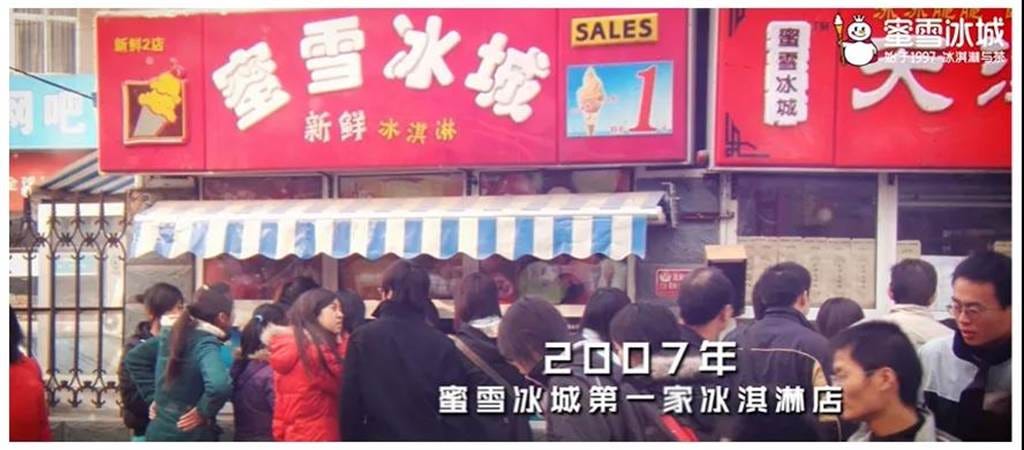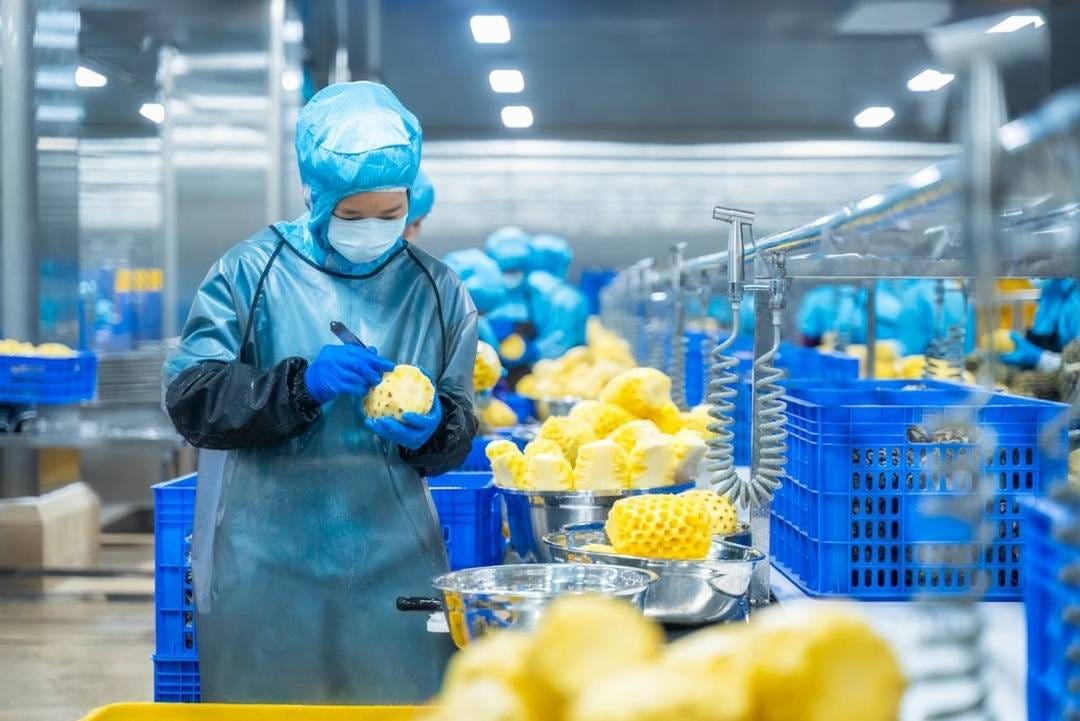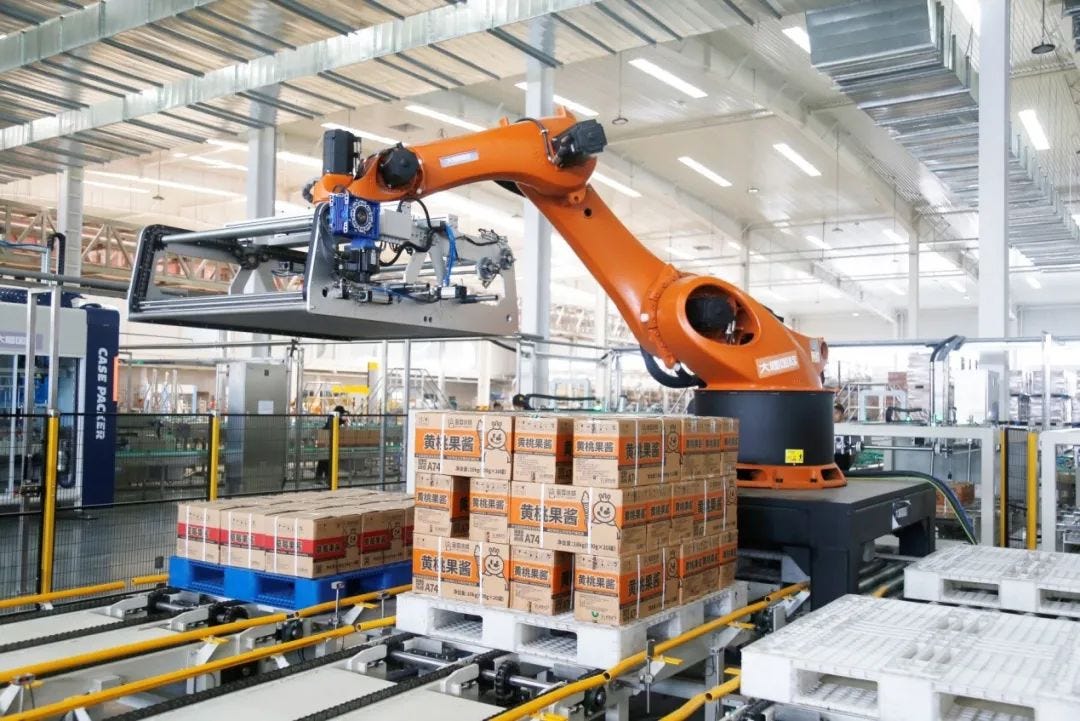The story of Mixue — a supply chain 🏭 empire built by Chinese grassroots
A dream begins with a ¥1 ice cream
Founded by brothers Zhang Hongchao and Zhang Hongfu in 1997, Mixue (2097.HK) began as a tiny shaved ice stall in Zhengzhou, the capital city at Henan Province, funded by their grandmother’s life savings of 3,000 yuan.
The brothers, hailing from a poor rural family in Shangqiu, a small city in Henan, faced relentless adversity when they were young. Zhang Hongchao even dropped out of middle school, worked odd jobs, and attempted raising quails and rabbits—all failures—before discovering the potential of affordable desserts.
Their early ventures were also plagued by setback as small businesses were not easy to sustain. At the moment, they experienced multiple pivots and different product experiments that weren't very successful, until their persistence paid off in 2006 when they launched a 1-yuan ice cream, a disruptive product that became their first hit, propelling the brand into the spotlight. The following year, they opened an ice cream shop with a great reputation, and they attracted dozens of franchisees.
However, the ice cream business proved challenging to operate, especially in winter, with many franchisees facing bankruptcy. This forced Mixue to reconsider its product mix—eventually developing a year-round sustainable business model with additional product lines including bubble tea and lemonade.
Fast forward to 2014, Mixue had established 1,000 stores; by 2020, it had surpassed 10,000, dominating lower-tier markets. This remarkable growth was achieved without any external financing—a rarity in the capital-intensive bubble tea industry.
Since Mixue's products are generally much cheaper than its peers, with most products priced at only ¥5-¥8—almost half the price of similar products from its competitors —many might think their success comes from their low-price strategy. In fact, this is merely a surface. Their real secret lies in extreme supply chain management, which ensures profitability and scalable replication with ultra-low pricing.
The Zhang brothers recognized the importance of supply chains in the food service industry very early on. Since 2007, Mixue began establishing raw material factories in the suburbs of Zhengzhou, though initially these facilities only processed ice cream powder and waffle cones. In 2012, they expanded by building a more robust production factory for core materials—not just for ice cream, but also for beverage product. Later, they even began growing their own fruit, striving to control everything from agricultural cultivation to in-house processing.
Additionally, since 2014, Mixue has invested in logistics operations to ensure franchisees receive materials at the lowest cost and with minimal delay. By 2023, the company had established 26 primary warehouses across China, serving stores throughout all 31 provinces, and had achieved cold chain logistics coverage for over 90% of its domestic locations. Now, their delivery network is so efficient that most areas—from first-tier cities to rural townships—can be reached within 12 hours.
Further, Mixue is attempting to replicate its successful experience in the global market. The company has established localized storage systems in 4 Southeast Asian countries, including 7 self-operated warehouses, supporting its globalization strategy.
Interestingly, with such powerful supply chain, Mixue doesn't set high requirements for its franchise partners. They generate revenue primarily by providing raw materials and equipment to franchisees (97% of their revenue), rather than collecting hefty franchise fees or taking a share of profits.
Such “heavy backend, light frontend" enable Micue maximize its backend vertical integration advantages while expanding rapidly at low prices product portfolios with franchise partners in a sustained win-win relationship.
Considering everything, although many people see Mixue as a PDD-alike company due to its low-price image, to me, it more closely resembles a Coca-Cola or McDonald's 🍔 —maintaining its cost leadership through a a formidable moat — self-controlled supply chain and scale advantages — that competitors simply cannot replicate.
As a result, despite facing slowing-down growth rate and food safety issues in the domestic market—as well as various challenges in localizing its model overseas—Mixue has delivered impressive performance.
As of Q3’24, Mixue operates more than 45,000 stores globally (only 20 being self-owned). This makes it the largest food chain worldwide by store count. In terms of GMV for 2023, Mixue ranks as China's largest freshly-made drinks (现制饮品) company and the world's fourth largest. The company commands market shares of approximately 11.3% in China and 2.2% globally.
Mixue's revenue grew at a 40.05% CAGR from 2021 to 2023. By the end of Q3'24, revenue had increased 21.1% year-over-year to reach ¥18.7 billion. These growth figures outperform competitors like Chabaidao and Guming. However, revenue growth in 2024 has been slowing compared to the 2021–2023 period.
The company's net profit grew at a 29.1% CAGR from 2021 to 2023. In the first three quarters of 2024, net profit surged by 42.33 % to reach ¥3.49 billion.
For detailed valuation analysis, I recommend reading Douglas Kim's analytical article — Mixue Group IPO Valuation Analysis.
However, to me Mixue isn't perfect. A concerning issue is the company's product research and development capability—its R&D investment is far lower than Guming's, and I would venture to guess it's also significantly lower than HeyTea's. This may be because Mixue believes original product creation in the bubble tea sector isn't that crucial since any innovations will be quickly copied.
In the end, as Mixue begins trading in Hong Kong today, the Zhang brothers must be elated. I hope their story inspires more people to embrace their dreams—proving that billion-dollar aspirations of grassroots individuals remain achievable in today's world, even when starting with something as humble as a cup of ¥1 ice cream. 🍦








